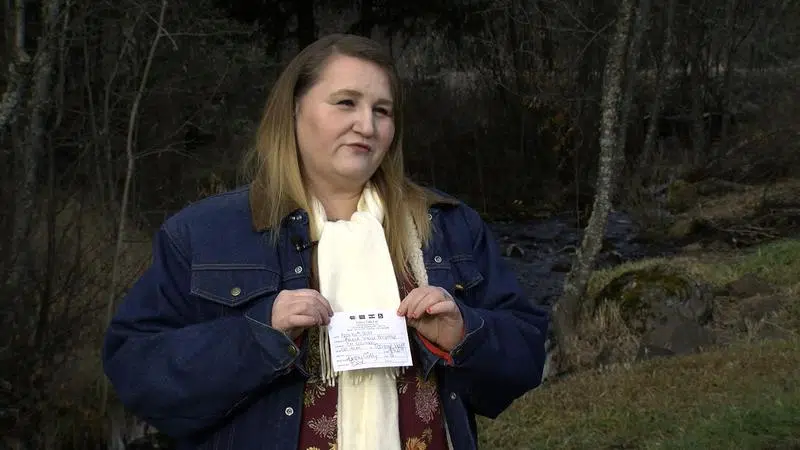
100 Mile House area woman pushing for smoother discharge process for emergency rural patients at RIH
100 MILE HOUSE, B.C. — A woman recently discharged from Royal Inland Hospital is raising concerns around how out-of-town patients are sent home.
Olivia Fletcher was brought to Royal Inland Hospital the night of November 15, after the truck she and her husband and son were driving rolled over just outside of 100 Mile House. Her husband and son remained at the 100 Mile House Hospital for treatment, while Fletcher was brought to Royal Inland Hospital in Kamloops.
She suffered non-life threatening injuries, but the clothing she was wearing when she arrived was cut off for treatment. When she was deemed medically fit to leave the next day (Nov. 16), Fletcher says her discharge process began without her having clothes to go home in.


